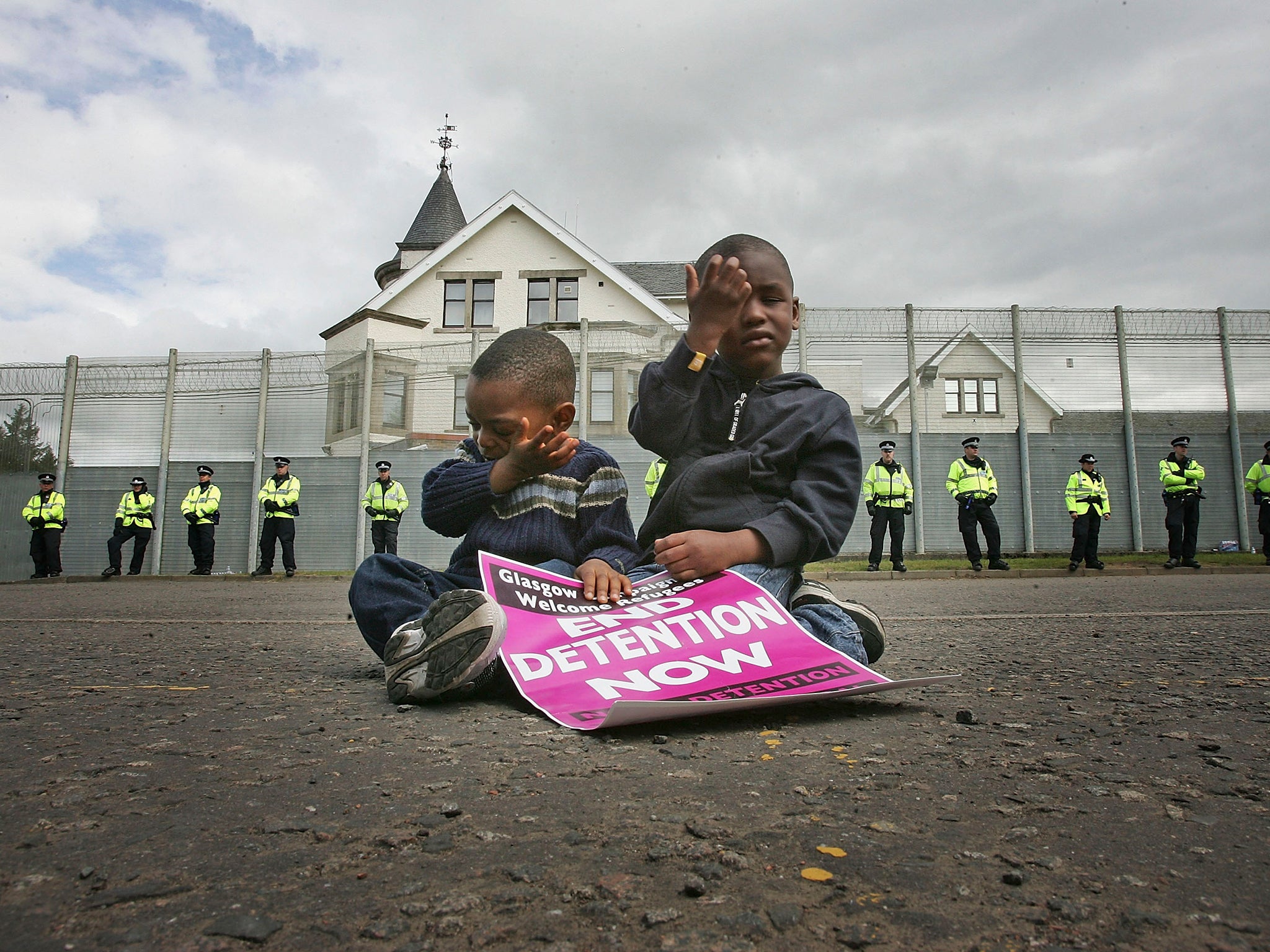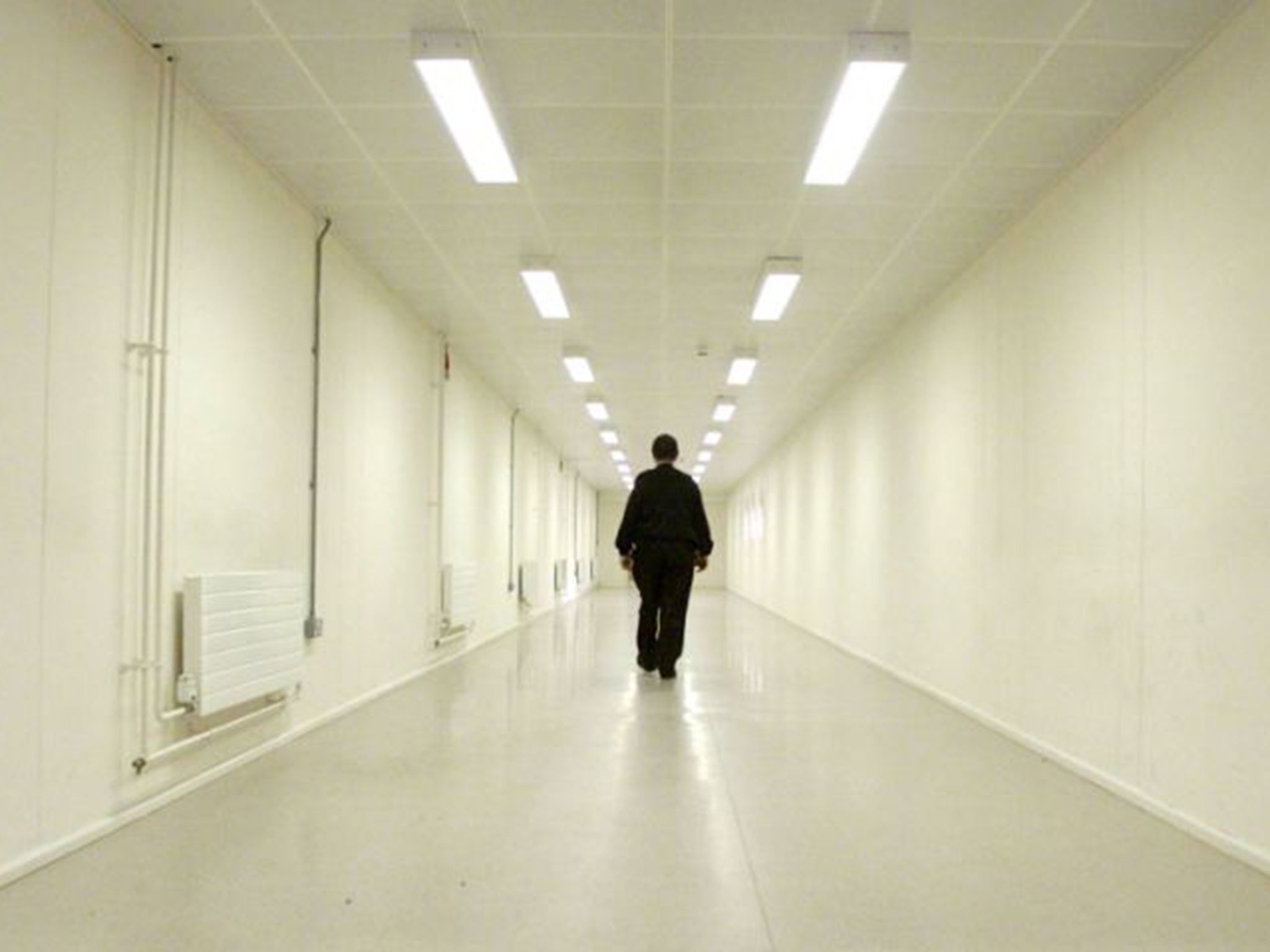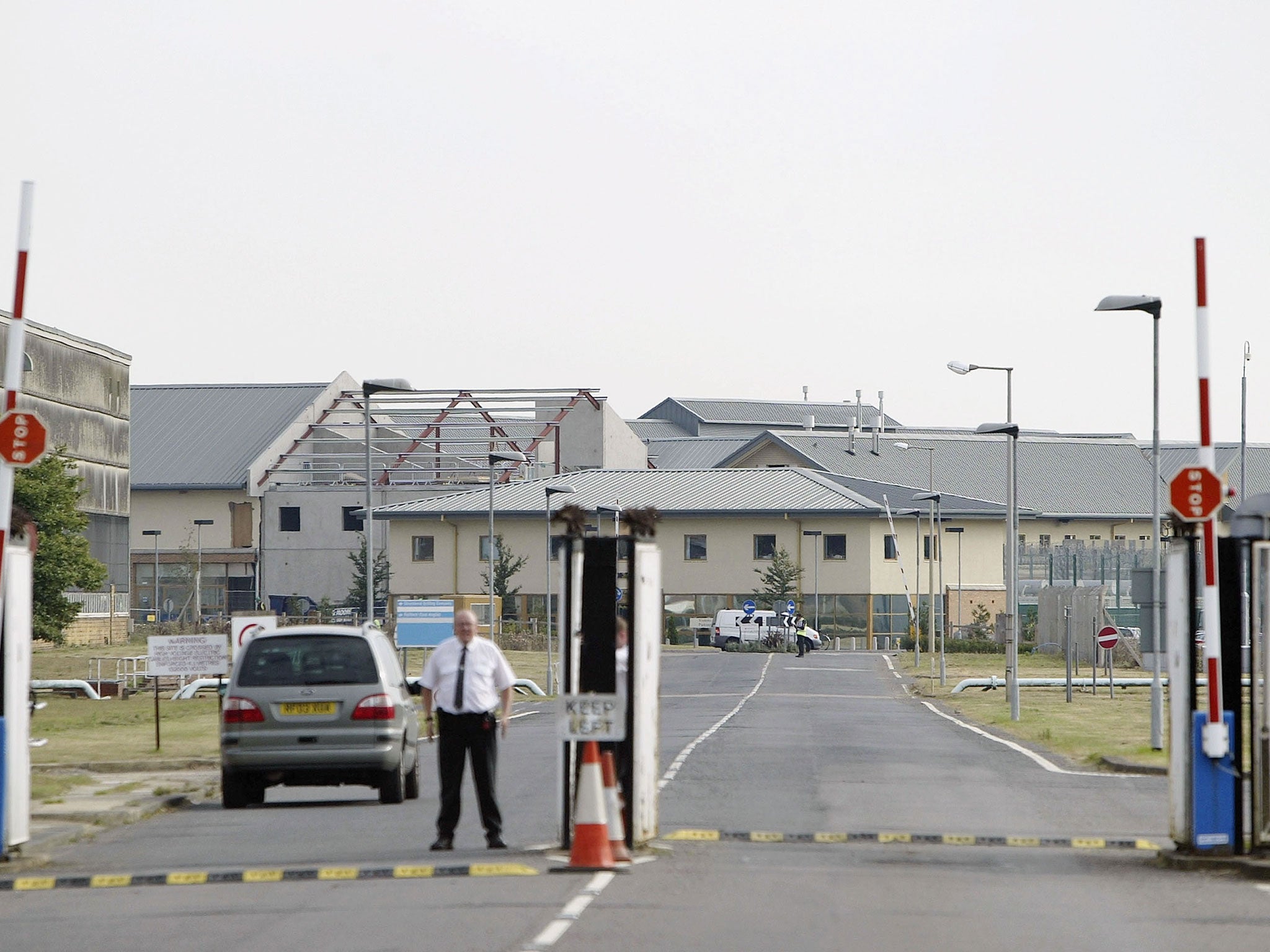Yarl's Wood: Children fleeing warzones being locked up at detention centre, investigation finds
UK border and asylum officers are sending teenagers as young as 14 straight to the centres, despite clear evidence they are children

Children fleeing the horrors of warzones such as Syria and Afghanistan are being routinely misclassified as over-18 and locked up in adult detention centres in breach of Government policies and legal guidelines, an investigation has discovered.
UK border and asylum officers are sending teenagers as young as 14 straight to the centres, despite clear evidence they are children and without referring their cases to social services, as guidelines dictate in such circumstances.
Five have been found this year in the Yarl’s Wood detention centre, the Bureau of Investigative Journalism has established. Separate figures published by the Refugee Council reveal that 127 minors have been found classified as adults in UK detention in the last five years.
Nick Clegg, the then Deputy Prime Minister, promised in May 2010 to end child detention, meaning youngsters could only be held in child-friendly facilities – and only then for a maximum of seven days.
However, the Bureau found scores of children were slipping through the net to be mistakenly assessed as adults by Home Office staff and left for months in conditions they described as "distressing" and "scary". Lawyers believe they are the tip of the iceberg.

Mistakes are happening because officers make decisions on age based on teenagers’ appearances. But this method is particularly unreliable because the early onset of facial hair among many boys from the Middle East can make some look older than their European or east Asian counterparts.
Government records show that at least five children have been detained in the heavily-criticised Yarl’s Wood centre in Bedfordshire since the start of 2015. Three were eventually classified as between 12 and 16 years old.
The Bureau’s three-month investigation established that only one in 10 Home Office asylum case workers – 117 out of 1,159 – has enough child safety training to make decisions on children.
When asylum seekers arrive in the UK they are assessed by immigration officers in an initial screening interview. Guidelines state that those claiming to be children should be given the benefit of the doubt and referred to social services for an age assessment. However, if their appearance or demeanour “very strongly suggests they are significantly over 18”, officials are allowed to decide themselves and send them to a detention centre.
But the Bureau has found that 14-year-olds have been assessed as adults, with immigration officers making decisions based on the person's appearance.
Government policy states anyone undergoing an age assessment should be released into the community until the results are known. But Freedom of Information requests disclosed that social workers have been sent to perform age assessments inside at least four adult detention centres in the last three years, in breach of guidelines.

Judith Dennis from the Refugee Council said: “This is clear evidence immigration officials are getting it wrong and there are no safeguards in place. We really don’t think immigration officials should ever be assessing people’s ages – the stakes are too high. Everyone who claims to be a child should have a timely, sensitive, lawful age assessment carried out by social workers.”
A Home Office spokesman said: “In the last Parliament, we ended the detention of children for immigration purposes. In doing so, we fundamentally changed the system to ensure that the welfare of the child is at the heart of every decision we make.
“In some cases, adults claim to be children in order to access the specialist support we offer – denying that support to those who genuinely need it.”
The spokesman said the department worked with a range of organisations to ensure that its age assessment process is “fair and robust”.
Case study one: ‘I just wanted to be around people my own age’
Fawad arrived in the UK alone last year after all of his family were killed during the fighting in Iraq. Immigration officials found him in Dover and immediately decided he was over 18. In fact he was just 15.
“I tried to explain that I was only a child but they didn’t listen,” he said. “They said ‘you shave, you must be a grown man’.” The teenager was moved to Dover detention centre.
“The detention centre was a scary place. There were huge grey buildings inside tall metal fences. It was cold. I barely slept. There were so many adults of all ages, speaking so many languages and I felt so alone.”
After three days in the centre he was released and moved to shared accommodation, but once again he was held with adults. “I did not feel safe,” Fawad recalled. “The place was dirty and dark. I often felt anxious and jumpy. I just wanted to be around people my own age.”
After six months his solicitor managed to get him an age assessment with social services and authorities accepted that he was 15. He was released earlier this year and has now managed to enrol in school and make friends his own age.
Case study two: ‘horror of detention’
Rauf, 15, fled Syria and was smuggled to the UK after his father was taken by an extremist group.
Rauf (not his real name) was found by police and taken to Harmondsworth detention centre, near Heathrow. He told immigration officials he was 15 but they did not believe him.
“I was held in a room with several adults and I was scared to go to sleep,” he said. After two weeks in detention, the Refugee Council’s Children Section managed to get Rauf out while he was being assessed by social services. Finally, his given age was accepted. “There are no words to describe the horror of detention: it was a prison. I don’t know how someone can decide your age in 10 minutes” he said.
